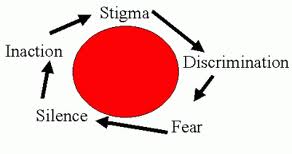 The beauty of the internet is its ability to allow anyone a platform with which to speak. The ugliness of the internet is its ability to allow anyone a platform with which to speak.
The beauty of the internet is its ability to allow anyone a platform with which to speak. The ugliness of the internet is its ability to allow anyone a platform with which to speak.
If you’ve ever been to a website you’re aware that as long as the “comments” section is enabled, everyone has access to it. When I was tossing the idea of starting this website in my head, I was warned that there will be good comments and bad ones – maybe even some downright ignorant ones.
Well this website is still in its infancy but I finally got it – the one comment that’s just too misguided to ignore.
Because we deal with some delicate stuff here at AAES, I’ve redacted the following comment slightly to fit the standard of respect we hold here. My response is in italics – the commenter’s is in bold.
BattedOutBagBride: interesting, but not exactly factual… first of all the correct medical term for “major depression” would be “clinical depression.”
Atoms and Empty Space: Actually, the terms are interchangeable. Psych Central’s website says the following: “A person who suffers from a major depressive disorder (sometimes also referred to as clinical depression or simply depression) must either have a depressed mood or a loss of interest or pleasure in daily activities consistently for at least a 2 week period.”
BOBB: if you did your research, you would understand suicide doesn’t always sprout from “major depression for decades”
AAES: That was never asserted on this website. However, according to the American Foundation for the Prevention of Suicide: “Ninety percent of all people who die by suicide have a diagnosable psychiatric disorder at the time of their death” (See more at: http://www.afsp.org/index.cfm?fuseaction=home.viewpage&page_id=050fea9f-b064-4092-b1135c3a70de1fda#sthash.gMWLiANt.dpuf_
BOBB: second of all, it would be inaccurate to call yourself a “suicidologist” (not sure if there is such a thing, but im sure it would require some medical training to say you have any idea what goes on in the mind…)
AAES: A suicidologist is one who studies suicide. According to suicidology.org: “There is not a formal process or set of guidelines/activities that one must complete in order to become a suicidologist. However, there are some recommended steps to take and some activities to participate in on the path towards identifying yourself as a suicidologist. For the most part, it involves becoming familiar with the existing suicide literature, conducting research on suicide- related behaviors, and gaining clinical experience with suicide-related behaviors, issues, and with survivors of suicide.”
BOBB: Also, if your advocating the prevention of mental illness, you should know how much words hurt and bring down character… , this bothers me a lot that you would try to start the first ambitious endeavor you undertook on lies… you should practice what you preach, because I actually think you have a lot of good ideas on her and I’m impressed. But trying to build up character over the internet, and trying to convince people what they should do when you don’t do it yourself?
AAES: What I went through after my mother’s suicide was very much a struggle and it continues to be so. I not only try to build up character on the internet, but also in my everyday life. Nothing written/posted on this site is a “lie” or modified/manipulated in any way. Extensive research is done prior to posting for the sole benefit of the reader. I attend seminars, watch webinars. I familiarize myself with the latest on suicide and mental wellness research and data. I reach out to psychiatrists, psychologists, professors, organizations, and universities through e-mail and hand-written letter. If they respond, their response is posted in the page titled “Acknowledgments.” And finally, please refer to our ‘Disclaimer’, in particular: Atoms and Empty Space “does, and will always, recognize and respect a person’s right, freedom, and ability to make a fair, well-informed and unforced choice about whether they seek help or not. This website is merely a resource and does not attempt what-so-ever to diagnose or cure conditions. Furthermore, any case studies discussed in this website is researched in light of the utmost respect for the individual and situation.”
I’m glad this comment was brought to AAES’s attention because it offers a snapshot into the misguided impressions typical of individuals with preconceived notions of mental disorders and illnesses.
Education is our greatest resource and if we can educate people like this then we can make one step further towards eradicating the stigma of mental illness.
